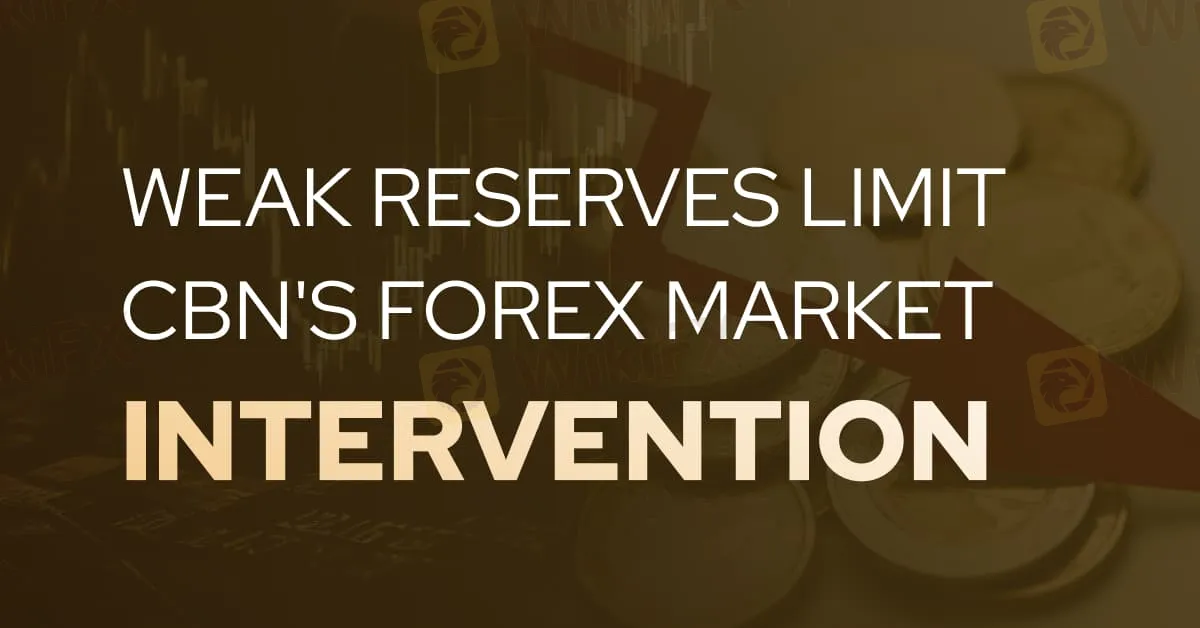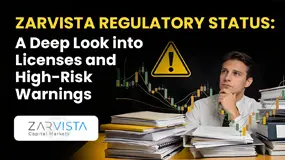Abstract:Weak foreign reserves, according to observers, may have prevented the Central Bank of Nigeria (CBN) from carrying out the much-anticipated intervention it had promised in the FX market.

Weak foreign reserves, according to observers, may have prevented the Central Bank of Nigeria (CBN) from carrying out the much-anticipated intervention it had promised in the FX market.
Folashodun Shonubi, the CBN's acting governor, had pledged three weeks prior that the bank would announce plans to clear the market of speculators and that it will take action to restore currency stability.
The CBN, according to Shonubi, has taken proactive steps to counteract the naira's depreciation, after speaking with President Bola Tinubu in the Presidential Villa in Abuja.
The government would retaliate harshly against anyone involved in illicit activity on the FX market, including the parallel market, Shonubi had forewarned.
Shonubi said discussions had centered on how to stabilize the naira, highlighting the president's concerns about market swings and their effects.
Speculators would suffer significant losses once the government's plans were put into action, he said, noting that speculative tendencies rather than demand in the parallel market.
The naira recovered two weeks ago from a low position where a dollar could be bought for N960, closing at N830/$, but relapsed last week when it was trading at N930/$ on the black market.
As of Friday, August 25, the dollar was worth N778.42 at the I&E window, down from N774.21.
Analysts had relied on the suggestion that Wale Edun, the new Minister of Finance and Coordinating Minister of the Economy, had made that the right value of the naira against the dollar at that time should be in N700.
Due to the country's enormous demand for dollars, which is fueled by its dependency on imported goods for various economic activities, the supply of dollars into the economy has been dropping while the demand for dollars has remained mostly stable.
The persistent decline in the country's external reserves, which measures dollars and foreign currency available for importation and international transactions, reflects this.
The country's external reserves decreased by $3.23 billion, or 8.5 percent, to $33.92 billion on July 9 from $37.15 billion on December 31, 2022, according to data from the CBN. The amount on Friday, August 25, 2023, was $33.741 billion.
Export revenues, remittances from the diaspora, overseas investment, international aid, external loans, and other sources of foreign cash input, which goes into the external reserves.
Finance for imports, the payment of external debt, the purchase of goods and services all reflect withdrawals from reserves in the form of foreign exchange.

Net forex inflow (NFI) is a crucial indicator of the economy's currency intake and outflow. NFI grows when inflow exceeds outflow. NFI decreases as outflow outpaces intake. According to CBN data, Nigeria's net forex inflow has decreased since 2019.
The CBN estimates that NFI was $76.38 billion in 2019. In 2020, it decreased by 6.6% to $70.65 billion, then decreased once more by 25.4% to $52.72 billion in 2021, and once more by 28.3% to $37.94 billion in 2022. As a result, within four years, the net forex inflow into the nation decreased by half (49.5%).
The drop in foreign investment inflow into the economy is a primary cause of this NFI's ongoing decline.
The National Bureau of Statistics (NBS) reports that foreign investment (capital importation) into Nigeria decreased from $23.99 billion in 2019 to $5.33 billion in 2022. This signifies a significant 77.8 percent decrease in a key source of dollars entering the nation.
The instability in the FX market, according to Yusuf, who is also the founder of the Centre for the Promotion of Private Enterprises (CPPE), was unpleasant but not unexpected given the extended period of distortions in the FX market.
The FX market is undoubtedly under pressure due to a variety of factors, which saw the money supply increase by an unprecedented 15% in May and June 2023.
It is obvious that this must have had an impact, look into this sharp increase, take action to prevent further expansion. Due to the severe illiquidity of the FX market, there had been a cumulative backlog of unfulfilled FX demand over the previous few years that reached billions of dollars.
Yusuf noted, FX market became more liberalized, pressure from the backlog of unfulfilled orders and was released on the I&E window, emphasizing the need for caution to avoid shady capital outflows on the currency.
He made the distinction between a free market and a total lack of regulation, arguing that in order to stop illicit financial flows, free entrepreneurship must be supplemented by an effective regulatory framework.
Recent CBN reports suggest that it will intervene in the foreign exchange market for a total of $17 billion in 2022, or an average of N1.4 billion per month. It is unlikely that we have seen an intervention of up to $1 billion in total since the start of the current administration, therefore it is anticipated that if the scale of intervention improves, the volatility would be subdued, the economist said. The government recently paid $500 million to pay matured debt service obligations on Eurobonds, which may also be a supply-side constraint.
Yusuf pointed out that the media accentuated the marginal drop in foreign reserves and also contributed to some fear, which may have encouraged speculative actions in the FX market.
“In months, we expect the instability to subside,” he said, the trajectory is for an increase in oil output, which will increase FX revenues.











